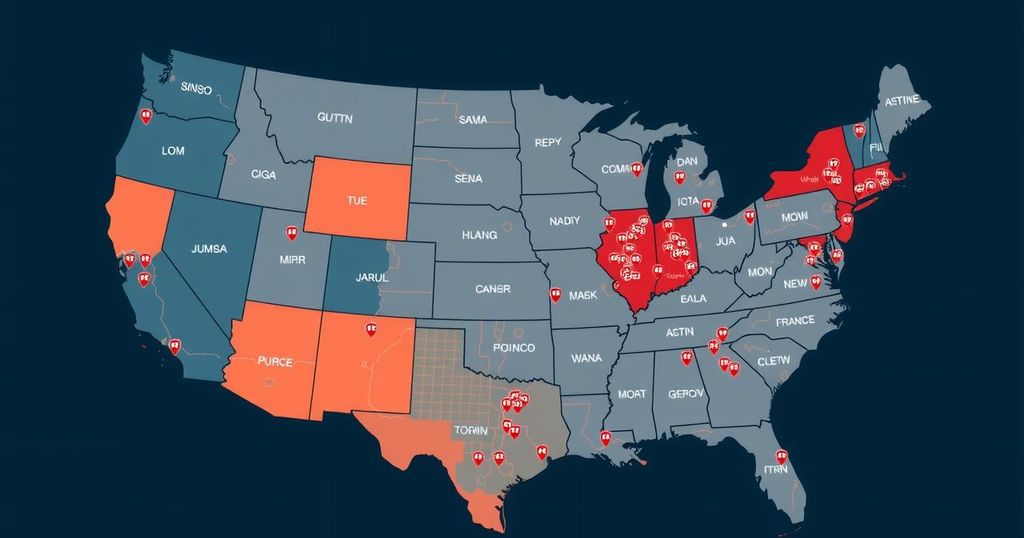Recent polling shows a shift in voter perception, with Republicans gaining an edge over Democrats for the first time since Trump’s rise in 2016. As Trump prepares to take office, Democrats grapple with coalition challenges and a loss of support, particularly following the recent elections. The political landscape is in flux as both parties assess their strategies for engagement and voter retention going forward.
Republicans have recently gained ground with voters regarding which party represents their interests effectively, marking a significant shift in American political dynamics. According to polling by the Pew Research Center, 50% of Americans now feel that the Republican Party aligns with their interests, the highest since Donald Trump became the party’s leader in 2016. This change occurs as Democrats confront challenges following the recent elections, where they failed to maintain control of key government positions.
As President-elect Trump prepares to take office, his administration’s agenda appears to resonate more with voters amid public dissatisfaction with President Biden’s leadership. Trump has capitalized on Biden’s perceived weaknesses while reinforcing his commitment to “America first” policies that prioritize economic growth and border security. Despite retaining strong support among Republicans, Trump’s appeal to a broader electorate remains complex, as evidenced by the stark contrast with Democratic candidates who struggled to maintain coalition support.
The Democratic Party is currently assessing its future strategy after losing crucial races in the recent election. Discussions within the party highlight various factors contributing to their setbacks, including backlash against cultural stances and a perceived abandonment of working-class voters. The firmer foothold gained by Republicans, particularly in battleground states, raises pressing questions regarding how the Democratic Party can rebuild its base and forge a successful coalition moving forward.
Moreover, many political analysts suggest that public sentiment could still fluctuate dramatically once Trump takes office. Democrats must contend with potential shifts in voter approval as the implications of Trump’s policies unfold. It remains unclear whether the electorate will continue to support Trump and his agenda, or whether dissatisfaction will emerge as a counterforce against Republican governance.
As the political landscape evolves, Trump’s electoral victories have been interpreted by his transition team as a mandate to pursue his agenda vigorously. However, electoral trends indicate that the Democratic Party must engage in a careful reevaluation of its positions to regain lost ground and better serve the diverse constituencies within their coalition.
Recent polling indicates a significant transformation in how voters perceive the two major political parties in the United States, especially after the latest election outcomes. For the first time in several years, Republicans have gained a perception advantage over Democrats, with an increasing number of voters believing the former represents their interests effectively. This change signifies a potential realignment in American politics as key constituencies react to the varied political agendas of both parties. As Donald Trump prepares to assume office, the implications of these shifting sentiments will have meaningful consequences for future legislative priorities and electoral strategies.
In summary, the recent polling data reflecting growing Republican voter support underscores a pivotal moment for both parties as they reflect on their strategies and outreach. The Democrats face significant challenges as they attempt to understand the reasons behind their electoral losses and the erosion of their coalition. With Trump at the helm, the political environment remains fluid, necessitating both parties to navigate the complexities of voter sentiment carefully. The unfolding political dynamics will shape the future landscape of American governance in the months and years to come.
Original Source: cbsaustin.com






